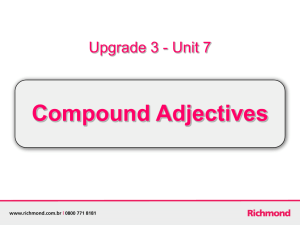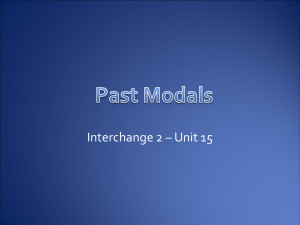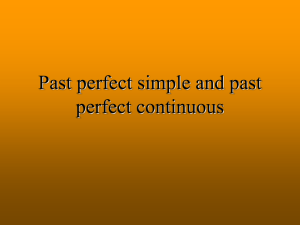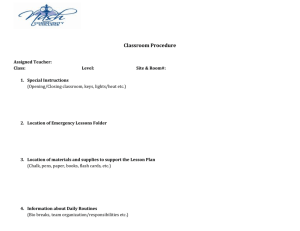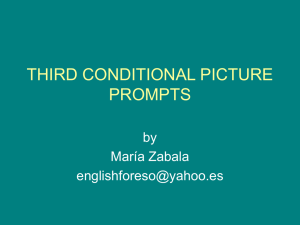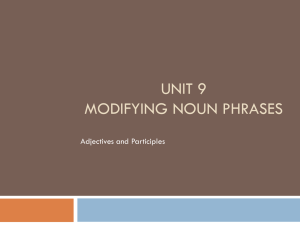Term 2 Week 4
advertisement
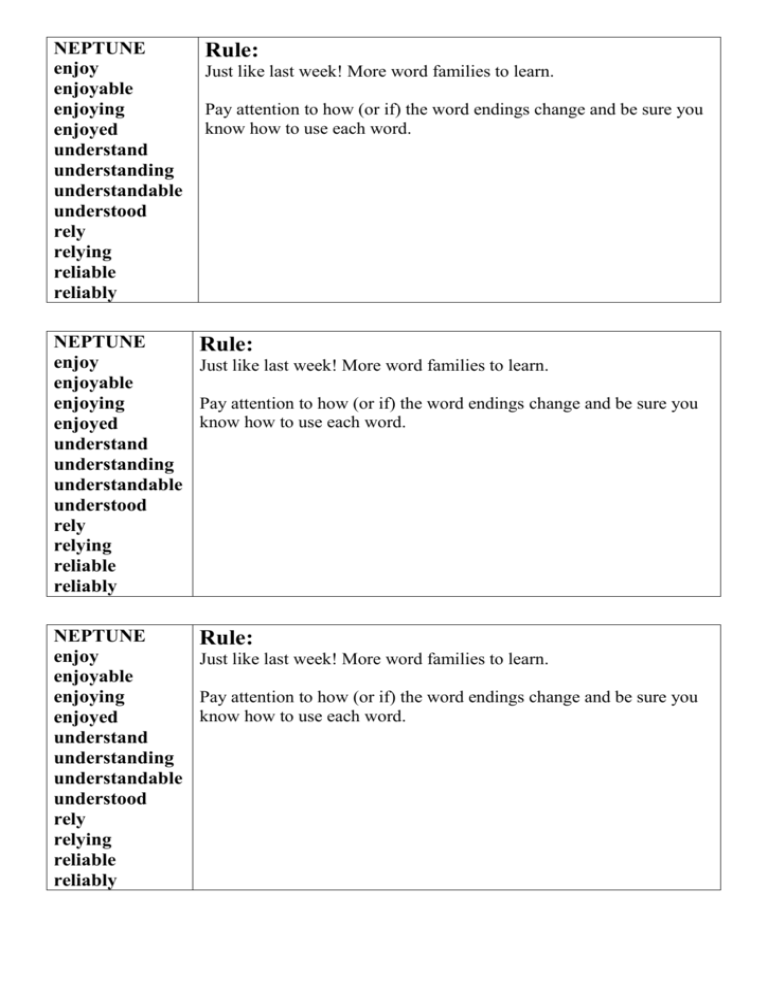
NEPTUNE enjoy enjoyable enjoying enjoyed understand understanding understandable understood rely relying reliable reliably Rule: Just like last week! More word families to learn. Pay attention to how (or if) the word endings change and be sure you know how to use each word. NEPTUNE Rule: enjoy Just like last week! More word families to learn. enjoyable enjoying Pay attention to how (or if) the word endings change and be sure you know how to use each word. enjoyed understand understanding understandable understood rely relying reliable reliably NEPTUNE Rule: enjoy Just like last week! More word families to learn. enjoyable enjoying Pay attention to how (or if) the word endings change and be sure you know how to use each word. enjoyed understand understanding understandable understood rely relying reliable reliably VENUS Rule: enjoy Just like last week! More word families to learn. enjoyable enjoying Pay attention to how (or if) the word endings change and be sure you know how to use each word. enjoyed understand understanding understandable understood rely relying reliable reliably VENUS Rule: enjoy Just like last week! More word families to learn. enjoyable Pay attention to how (or if) the word endings change and be sure you enjoying know how to use each word. enjoyed understand understanding understandable understood rely relying reliable reliably VENUS Rule: enjoy Just like last week! More word families to learn. enjoyable Pay attention to how (or if) the word endings change and be sure you enjoying know how to use each word. enjoyed understand understanding understandable understood rely relying reliable reliably MERCURY innocent innocence innocently decent decently decency confide confidence confidently confidential imagine excellent Rule: MERCURY innocent innocence innocently decent decently decency confide confidence confidently confidential imagine excellent Rule: Some word families for you to be practising! Look at how the endings change, and think about how this affects the word class. For example, innocent is an adjective, as it would describe a noun. The innocent cat sat on the windowsill. Innocently is an adverb, as it describes the verb: The cat sat innocently on the windowsill. Innocence is a noun – it’s an abstract noun that names a feeling or state of being we can’t touch. The cat’s innocence was clear. This sentence shows the noun, innocence, is the name of the feeling, and it belongs to the cat (hence the apostrophe! Some word families for you to be practising! Look at how the endings change, and think about how this affects the word class. For example, innocent is an adjective, as it would describe a noun. The innocent cat sat on the windowsill. Innocently is an adverb, as it describes the verb: The cat sat innocently on the windowsill. Innocence is a noun – it’s an abstract noun that names a feeling or state of being we can’t touch. The cat’s innocence was clear. This sentence shows the noun, innocence, is the name of the feeling, and it belongs to the cat (hence the apostrophe! Practise your spellings on the page below. Use the look, cover, write, check method. You may also want to use the words in sentences if you are still unsure of their meaning. Practise your spellings on the page below. Use the look, cover, write, check method. You may also want to use the words in sentences if you are still unsure of their meaning. JUPITER sing singing sang ring ringing rang fling flinging flung bring bringing brought Rule: JUPITER sing singing sang ring ringing rang fling flinging flung bring bringing brought Rule: JUPITER sing singing sang ring ringing rang fling flinging flung bring bringing brought Rule: The first word in each set is the infinitive form of the word, which just means it is the original form and that it would go with ‘to’: to sing, to ring, to fling, to bring. The second word in each set, ending with –ing, is the present participle: is singing, is ringing, is flinging, is bringing. The third word in each set is the past participle (the past tense version of the word): he sang, he rang, he flung, he brought. Notice how the words change a lot for fling-flung and bring-brought. It is important that we try to use the past participle when writing about things in the past tense, as this makes our writing flow better and more active. It is easier to read than ‘was’ all of the time: He was ringing home to talk to his mother. He rang home to talk to his mother. The first version of the word is clumsier, harder to read, the second sentence reads much better. The first word in each set is the infinitive form of the word, which just means it is the original form and that it would go with ‘to’: to sing, to ring, to fling, to bring. The second word in each set, ending with –ing, is the present participle: is singing, is ringing, is flinging, is bringing. The third word in each set is the past participle (the past tense version of the word): he sang, he rang, he flung, he brought. Notice how the words change a lot for fling-flung and bring-brought. It is important that we try to use the past participle when writing about things in the past tense, as this makes our writing flow better and more active. It is easier to read than ‘was’ all of the time: He was ringing home to talk to his mother. He rang home to talk to his mother. The first version of the word is clumsier, harder to read, the second sentence reads much better. The first word in each set is the infinitive form of the word, which just means it is the original form and that it would go with ‘to’: to sing, to ring, to fling, to bring. The second word in each set, ending with –ing, is the present participle: is singing, is ringing, is flinging, is bringing. The third word in each set is the past participle (the past tense version of the word): he sang, he rang, he flung, he brought. Notice how the words change a lot for fling-flung and bring-brought. It is important that we try to use the past participle when writing about things in the past tense, as this makes our writing flow better and more active. It is easier to read than ‘was’ all of the time: He was ringing home to talk to his mother. He rang home to talk to his mother. The first version of the word is clumsier, harder to read, the second sentence reads much better.
